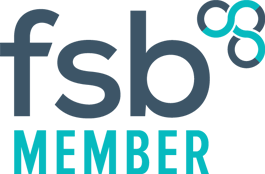TALKING LATE PAYMENTS
We all know the headaches of juggling cash flow but add a late payer into the mix and things can become pretty stressful. The knock-on effect can mean you can’t pay your own suppliers, or even your own bills.
The Small Business Commissioner Paul Uppal, has been given the job of tackling late payments for small business and that is no surprise considering nearly a quarter of UK businesses report late payments a threat to their survival.
So if late payers are a problem for you, then read on and grab yourself some handy tips
-
Payment starts with invoicing
Sounds basic but did the client sign a contract? What proof do you have they agreed to pay your fees? Did you send them a copy of your terms and conditions, are these even up to date and do they include late payment charges
Are your payment terms crystal clear? If not then make sure they are. Have a good think about what your payment terms are.
A wise move would be to ask for payments in advance for new customers but have the standard 30-days for your existing customers.
This brings us onto making sure you invoice the right person. Get on the phone and find out who the right person is. Does this person work part time? Find out when they do their payment runs.
Invoicing the wrong person wastes valuable time. If it takes you 30 days to issue a reminder only to find out the invoice never arrived, you’re starting from day one all over again.
Make sure the correct information is on the invoice, paying attention to the purchase order references, address and bank details, you don’t want to cause yourself any unnecessary delays in getting paid.
-
Implementing Late Payment Procedures
A good credit control procedure is a must as it makes it easy to check for outstanding debtors, but the procedure only works if you follow it.
You must make sure you chase debtors up and run regular reports to check which invoices are outstanding.
Send out invoices on time, chase them up before they are due and even send out polite reminders the day before they are due.
If you don’t get a response or payment hasn’t been received, send out reminders the day after they are due then following up with a phone call a few days later to see what the problem is.
Keep communication open, friendly but be firm. You want paying after all and deserve to be paid for the work you have done. Remember you are a business not a charity.
Do keep in mind however frustrating the situation is being polite costs nothing and is more than likely to result in a positive outcome.
-
Do the background checks
Make sure you run regular credit checks, not just on new companies that you do business with but the existing ones too, run a credit check before you supply goods or services, especially for bigger jobs as this will help ensure you don’t end up out of pocket.
-
Credit Collection Agents
As a last resort you can always instruct a credit control agency to do the legwork for you, these agencies have more resources to deal with the chasing of debts. You will have to pay a fee but for a large outstanding invoice the benefit usually outweighs the cost.
Finally, the best way to manage your cash flow is to be on the ball with your credit control. A good credit control system should be adopted and implemented at the outset.
Above all building good positive relationships with your customers will make it much easier in the future to deal with any issues should they ever arise.
If credit control and chasing debtors is not your thing or you simply don’t have the time to manage it effectively, then you can always consider outsourcing this to us, we have an abundance of experience in dealing with credit control and can provide you with a process tailor made to suit the needs of your business.








